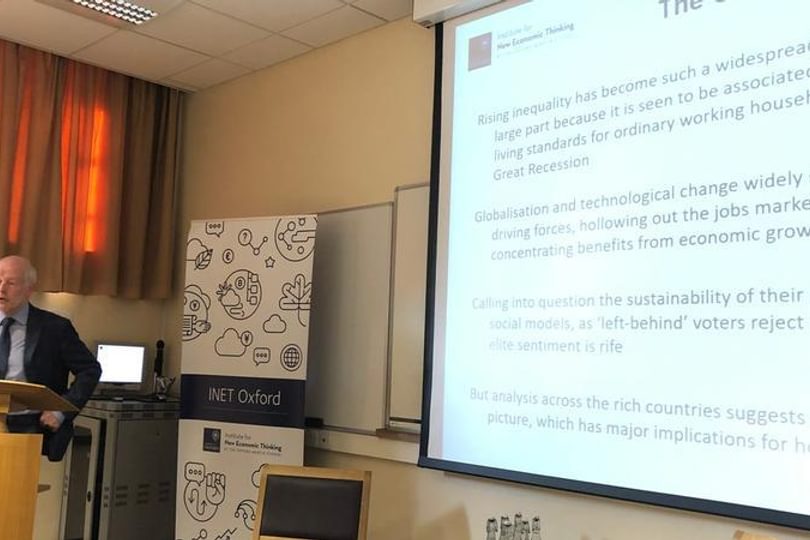
The plight of middle and lower-income families in affluent countries who aren’t feeling the benefits of economic growth often referred to as the ‘squeezed middle’ or the ‘left-behind’ - was at the centre of discussions last week at a two-day conference on Generating Inclusive Growth.
Co-hosted by the Institute for New Economic Thinking at the Oxford Martin School and the OECD Centre for Opportunity and Equality the conference looked at various issues facing working families in OECD countries from job vulnerability to wage stagnation.
Romina Boarini, Senior Advisor and Coordinator of the OECD’s Inclusive Growth Initiative opened the day with a keynote on why rising inequality has become a widespread concern in rich countries and how it can be addressed. She framed economic growth not as a goal in itself, but as a vehicle to improve people’s wellbeing, setting the context for two days of presentations and discussions.
Professor Brian Nolan, Director of the Oxford Martin Programme on Inequality and Prosperity, discussed the findings of the book he edited, Generating Prosperity for Working Families in Affluent Countries, which has just been published by Oxford University Press. The book teases out why economic growth may not filter through to household incomes around and below the middle, and how much this is due to increasing inequality. Differences in national contexts, institutions and policies are seen to underpin how much better some countries have performed in generating broadly-based growth in real incomes. The book also examines other indicators of living standards such as non-monetary indicators of deprivation and financial strain, wealth, and intergenerational mobility. Professor Nolan emphasised how understanding what has held ordinary living standards back over recent decades can inform the quest for inclusive growth and prosperity.
Presentations from Oxford and external researchers and from organisations including the Resolution Foundation, the World Inequality Database and the International Labour Organisation generated "varied and lively discussion" across the two days, said Professor Nolan.
He added, "While globalization and technological change have been important influences on individual wages and household incomes, national institutions and policies really matter, and provide a variety of levers through which inclusive growth can be effectively promoted."